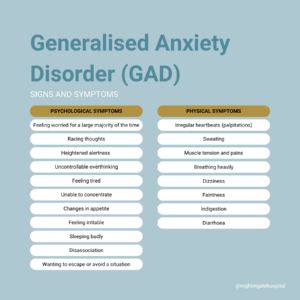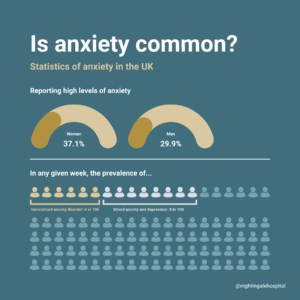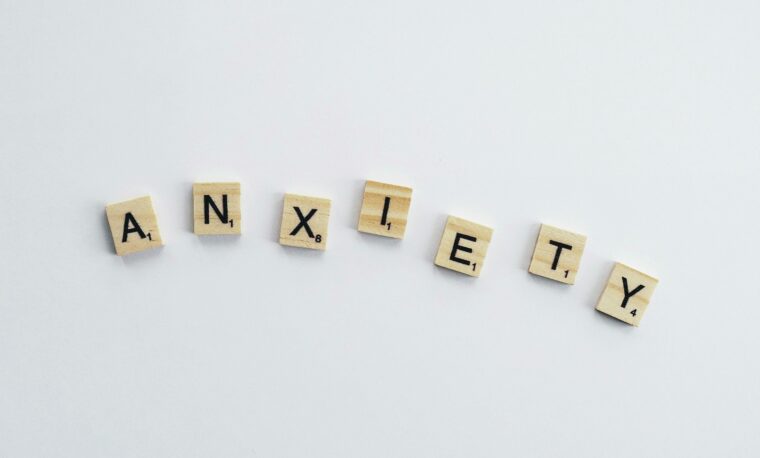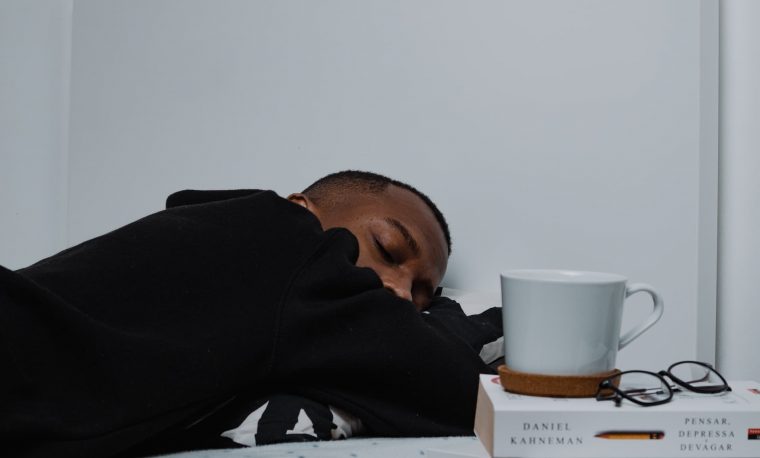Anxiety: What is it, symptoms, prevalence, causes, diagnosis, treatments
What is anxiety?
Anxiety and feelings of fear and worry are normal human reactions when we are faced with a threatening or difficult situation. Feelings of anxiety can vary from mild to severe, and for most people, these feelings will fade after the situation has ended. For example, you might be anxious about a job interview or sitting an exam.
However, generalised anxiety disorder (GAD) relates to intrusive and ongoing anxiety. It causes people to be anxious about a wide range of events or situations, rather than an isolated one. People with GAD feel anxious most days and often struggle to remember the last time they felt relaxed.
Anxiety is also the main symptom of many other mental health conditions, including panic disorders, phobias, social anxiety and post-traumatic stress disorder.
Get support for anxiety
Our team is available for a confidential conversation about what you are experiencing and how we can support you. Complete the enquiry form below and our team will be in contact with you.
Symptoms of anxiety
Psychological symptoms of generalised anxiety disorder (GAD)
- Feeling worried for a large majority of the time
- Racing thoughts
- Heightened alertness
- Uncontrollable overthinking
- Feeling tired
- Unable to concentrate
- Changes in appetite
- Feeling irritable
- Sleeping badly
- Disassociation
- Wanting to escape or avoid a particular situation
Physical symptoms of generalised anxiety disorder (GAD)
- Irregular heartbeats (palpitations)
- Sweating
- Muscle tension and pains
- Breathing heavily
- Dizziness
- Faintness
- Indigestion
- Diarrhoea

Our consultant psychiatrists and therapists specialise in anxiety
We have a team of 45 consultant psychiatrists and over 100 therapists who specialise in treating a range of mental health disorders, including anxiety.
Our team are here to understand what you are experiencing and match you with a suitable specialist who will be able to put together an individualised treatment plan for you. Complete the enquiry form below and our team will contact you for a confidential discussion.
How common is anxiety?
It is important to distinguish between feelings of anxiety and generalised anxiety disorder.
- In 2022 – 2023, an average of 37.1% of women and 29.9% of men reported high levels of anxiety.1 Compared to data from 2012 to 2015, this has increased significantly from 21.8% of women and 18.3% of men reporting high levels of anxiety.2
- In any given week the prevalence of generalised anxiety disorder in England is 6 in 100 people and mixed anxiety and depression is 8 in 100 people.3

Causes of anxiety
Anxiety can be caused by a range of factors and like many mental health conditions, there is no definitive answer to what causes it. However, some factors which may play a role in anxiety are:
- Environmental factors like social isolation, trauma, life changes and long-lasting stress
- Other physical health problems such as chronic pain
- Bereavement and grief
- Chemical imbalances
Diagnosing generalised anxiety disorder
Generalised anxiety disorder can be difficult to diagnose as the symptoms can overlap with other mental health conditions, and even physical health conditions. However, if anxiety is affecting your daily life or causing you distress, it may be time to seek professional support.
A diagnosis for generalised anxiety disorder can be done by a consultant psychiatrist. They might ask you questions about physical or psychological symptoms and how long you have had them for, your worries and fears and your personal life. From this assessment, a consultant psychiatrist will put together an individualised treatment plan and recommendation for you which may include medication, psychotherapy or CBT.
Treatment for anxiety
At Nightingale, we specialise in private anxiety treatment at our hospital in Central London. We provide individual, tailor-made and flexible treatment programmes to treat anxiety based on current clinical evidence.
You can seek treatment for anxiety at Nightingale through inpatient, day patient or outpatient treatment.
We have a range of leading experts specialising in treating anxiety. This ensures that you are suitably matched with a therapist or consultant to address your individual needs and requirements. We aim to empower patients with various techniques they can put into practice in their everyday life.
Our approach to treating generalised anxiety disorder is based on evidence-based treatments that are individualised to you, but some options for anxiety treatment include:
- Psychotherapy for anxiety: Psychotherapy is a method of treating anxiety that helps to understand and normalise your experiences. Psychotherapists work with patients on how past experiences can inform the present and learn how to deal with this. The treatment can take place in groups or individually.
- Cognitive behavioural therapy (CBT) for anxiety: Cognitive behavioural therapy, often known as CBT, can help break the cycle of anxiety. It does this by breaking down overwhelming problems into smaller parts, identifying unhelpful patterns of thinking and uses practical strategies to change or modify your behaviour. In short, CBT teaches that you have control over your thoughts, feelings and behaviours.
- Medication for anxiety: Medication may help you to feel less anxious and cope better so that you can start to enjoy life and deal with your anxieties more effectively.
Support for anxiety
Anxiety is a crippling and debilitating condition, but we have seen countless people live a life they never thought possible while being equipped with strategies to manage their anxiety. Reach out to our team for a confidential discussion about the best path forward for you.
Useful resources
Helping a loved one with anxiety
- Don’t pressure them to do more than they feel comfortable with, especially when having a panic attack
- Ask about their experience and try to learn more about anxiety in general. They will feel supported and cared about by you attempting to understand their issues
- When they are having a panic attack, support them by encouraging them to do breathing exercises (such as slowly and deeply, ask them to count out loud or name ten things they can see with their eyes)
- Support them in seeking professional help, either through therapy or medication
- Office for National Statistics, Public opinions and social trends, Great Britain: personal well-being and loneliness
- Office for National Statistics, Measuring National Well-being: Anxiety
- NHS, Adult Psychiatric Morbidity Survey: Survey of Mental Health and Wellbeing, England, 2014, Chapter 2 - Common Mental Disorders
Related treatments
- OCD day therapy programme
- Occupational therapy
- Clinical psychology
- Acceptance and commitment therapy (ACT)
- Drama therapy
- OCD and related disorders unit
- Art therapy
- Cognitive analytic therapy (CAT)
- Cognitive behavioural therapy (CBT)
- Counselling
- Eye movement desensitisation and reprocessing (EMDR)
- Interpersonal therapy (IPT)
- Mindfulness-based cognitive therapy (MBCT)
- Psychotherapy
- Sleep therapy
- Specialist therapies
- Well-being therapies
- Medication
- Schema therapy











